High Blood Pressure (Hypertension)
- High blood pressure (hypertension) can be dangerous if it is not treated. It can put you at risk for stroke, heart failure (HF), kidney failure, and other medical problems. Changing what you eat, exercising more, and taking your medicine can assist you to keep your blood pressure where it should be.
- Your blood pressure (BP) calculation takes into account how much blood is passing through your blood vessels and the amount of resistance the blood meets while the heart is pumping.
- High blood pressure, or hypertension, happens when the force of blood pushing through your vessels is consistently too high. In this article, we will cover the basics of hypertension, including its symptoms, causes, how it is treated, and more.
Table of Contents
What is high blood pressure (hypertension)?
- Blood pressure (BP) is the measurement of the pressure or force of blood pushing against blood vessel walls. When you have hypertension (high blood pressure), it means the pressure against the blood vessel walls in your body is consistently high. High blood pressure is often known as the “silent killer” because you may not be aware that anything is wrong, but the damage is still occurring within your body.
- Narrow blood vessels, known as arteries, create more resistance to blood flow. The narrower your arteries are, the more resistance there is, and the higher your blood pressure (BP) will be. Over the long term, the improved pressure can cause health issues, including heart disease.
- Hypertension is quite usual. In fact, since the guidelines changed in 2017, nearly 1/2 of American adults could now be diagnosed with this condition.
- Hypertension commonly develops over the course of several years. Usually, you do not notice any symptoms. Yet even without symptoms, high blood pressure can cause harm to your blood vessels and organs, especially the brain, heart, eyes, and kidneys.
- Early detection is the main. Regular blood pressure (BP) readings can assist you and your doctor notice any changes. If your blood pressure (BP) is elevated, your doctor may have you check your blood pressure over a few weeks to look if the number stays elevated or falls back to normal levels.
- Treatment for hypertension involves both prescription medication and healthy lifestyle changes. If the condition is not treated, it could conduct to health issues, including heart attack and stroke.
- Your blood pressure (BP) reading has two numbers. The top number is the systolic blood pressure, which calculates the pressure on the blood vessel walls when your heart beats or contracts. The lower number is diastolic blood pressure, which measures the pressure on your blood vessels between beats when your heart is relaxing.
- For example, a blood pressure of 110/70 is within the normal range, yet a blood pressure of 135/85 is stage 1 (mild) hypertension, and so on (see table).
| Category | Blood Pressure |
| Normal | Under 130/80 mmHg |
| Stage I Hypertension (mild) | 130-139/OR diastolic between 80-89 mmHg |
| Stage 2 Hypertension (moderate) | 140/90 mmHg or higher |
| Hypertensive Crisis (get emergency care) | 180/120 mmHg or higher |
What are the types of high blood pressure?
Your provider (doctor) will diagnose you with one of two types of high blood pressure:
- Primary (also called essential) high blood pressure: Causes of this most usual type of high blood pressure include aging and unhealthy habits such as not getting enough exercise.
- Secondary high blood pressure: Causes of this type of high blood pressure involve different medical problems (for example kidney or hormonal problems) or sometimes a medication you are taking.
Five categories define blood pressure (BP) readings for adults:
- Healthy: A healthy blood pressure (BP) reading is less than 120/80 millimeters of mercury (mm Hg).
- Elevated: The systolic number is between 120 and 129 mm Hg, and the diastolic number is decreased to 80 mm Hg. Doctors usually do not treat elevated blood pressure (BP) with medication. Instead, your doctor may encourage lifestyle changes to assist decrease your numbers.
- Stage 1 hypertension: The systolic number is in the middle of 130 and 139 mm Hg or the diastolic number is between 80 and 89 mm Hg.
- Stage 2 hypertension: The systolic number is 140 mm Hg or higher, or the diastolic number is 90 mm Hg or greater.
- Hypertensive crisis: The systolic number is great at 180 mm Hg or the diastolic number is over 120 mm Hg. Blood pressure (BP) in this range requires urgent medical attention. If any symptoms such as chest pain, headache, shortness of breath, vertigo, or visual changes occur when blood pressure is high, emergency medical treatment is required.
What can occur if high blood pressure is not treated?
Untreated hypertension may lead to serious health problems involving:
- Stroke
- Heart attack
- Peripheral vascular disease
- Kidney disease/failure
- Complications during pregnancy
- Eye damage
- Vascular dementia.
Can high blood pressure affect pregnancy?
- High blood pressure (HBP) complicates about 10% (ten%) of all pregnancies. There are several various types of high blood pressure during pregnancy and they range from mild to severe.
The forms of high blood pressure (HBP) during pregnancy involve:
- Chronic hypertension: High blood pressure (HBP) which is present in the previous pregnancy.
- Gestational hypertension: High blood pressure (HBP) in the latter area of pregnancy.
- Preeclampsia: This is a dangerous condition that commonly develops in the latter half of pregnancy and results in hypertension, protein in the urine, and generalized swelling in the pregnant person. It can harm other organs in the body and cause seizures (eclampsia).
- Chronic hypertension with superimposed preeclampsia: Pregnant people who have chronic hypertension are at improved risk for developing preeclampsia.
- Your provider (doctor) will check your blood pressure regularly during prenatal appointments, yet if you have concerns about your blood pressure, be sure to talk with your provider (doctor).
- People with hypertension can deliver healthy babies even without having the condition. Yet it can be dangerous to both the birthing parent and baby if it is not monitored closely and managed during the pregnancy.
- People with increased blood pressure who become pregnant are more likely to develop complicationsTrusted Source. For example, pregnant women with hypertension may experience reduced kidney function. Babies born to birthing parents with hypertension may have a decreased birth weight or be born prematurely.
- Certain people may develop hypertension during their pregnancies. Several types of increased blood pressure problems can develop. The condition sometimes reverses itself once the baby is born. Developing hypertension during pregnancy may improve your risk of developing hypertension later in life.
Preeclampsia
- In certain cases, pregnant people with hypertension may develop preeclampsia during their pregnancy. This condition of improved blood pressure can cause kidney and other organ complications. This can outcome in high protein levels in the urine, problems with liver function, fluid in the lungs, or visual problems.
- As this condition worsens, the risks improve for the mother and baby. Preeclampsia can lead to eclampsia, which causes seizures. Increased blood pressure problems in pregnancy remain an important cause of maternal death in the United States. Complications for the baby involve low birth weight, early birth, and stillbirth.
- There is no known way to prevent preeclampsia, and the only way to treat the condition is to deliver the baby. If you evolve this condition during your pregnancy, your doctor will closely monitor you for complications.
What causes high blood pressure?
- There are 2 types of hypertension. Each type has a various cause.
Essential (primary) hypertension
- Essential hypertension is also known as primary hypertension. This kind of hypertension grows over time. Most people have this type of high (increased) blood pressure (HBP).
A combination of factors commonly play a role in the development of essential hypertension:
- Genes: Certain people are genetically predisposed to hypertension. This may be from gene mutations or genetic abnormalities inherited from your parents.
- Age: Individuals over 65 years old are great at risk for hypertension.
- Race: Black non-Hispanic individuals have a greater incidence of hypertension.
- Living with obesity: Living with obesity can conduct to a few cardiac issues, including hypertension.
- High alcohol consumption: Women who habitually have more than one drink per day, and men who have more than 2 drinks per day, maybe at an increased risk for hypertension.
- Living a very sedentary lifestyle: Decreased levels of fitness have been connected to hypertension.
- Living with diabetes and/or metabolic syndrome: Individuals diagnosed with either diabetes or metabolic syndrome are at a greater risk of developing hypertension.
- high sodium intake: There is a small association between daily high sodium intake (more than 1.5g a day) and hypertension.
Secondary hypertension
- Secondary hypertension sometimes happens quickly and can become more severe than primary hypertension.
Several conditionsTrusted Sources that may cause secondary hypertension to involve:
- kidney disease
- obstructive sleep apnea
- congenital heart defects
- problems with your thyroid
- side effects of medications
- use of illegal drugs
- chronic consumption of alcohol
- adrenal gland problems
- certain endocrine tumors.
What are the symptoms of hypertension?
- Hypertension is commonly a silent condition. Many people who not experience any symptoms. It may hold years or even decades for the condition to reach levels severe enough that symptoms become obvious. Even then, these symptoms may be attributed to another issue.
SymptomsTrusted Source of severe hypertension can involve:
- flushing
- blood spots in the eyes (subconjunctival hemorrhage)
- dizziness.
- According to the American Heart Association Trusted Source, contrary to popular thought, severe hypertension does not typically cause nosebleeds or headaches — except when someone is in a hypertensive crisis.
- The best way to know if you have hypertension is to get regular blood pressure (BP) readings. Most doctors’ offices take a blood pressure (BP) reading at every appointment.
- If you only have a yearly physical, tell your doctor about your risks for hypertension and other readings you may need to assist you to watch your blood pressure.
- For example, if you have a family history of heart disease or have risk factors for developing the condition, your doctor (provide) may recommend that you have your blood pressure checked twice a year. This assists you and your doctor stay on top of any possible issues before they become problematic.
What are the effects of high blood pressure on the body?
- Because hypertension is sometimes a silent condition, it can cause harm to your body for years after previous symptoms become obvious. If hypertension is not treated, you may face severe, even fatal, complications.
Complications of hypertension include the following.
Damaged arteries
- Healthy arteries are flexible and strong. Blood flows openly and unobstructed through healthy arteries and vessels.
- Hypertension creates arteries tougher, tighter, and less elastic. This damage creates it easier for dietary fats to deposit in your arteries and block blood flow. This damage can lead to improved blood pressure, blockages, and, eventually, heart attack and stroke.
Damaged heart
- Hypertension creates your heart work too hard. The improved pressure in your blood vessels forces your heart’s muscles to pump more often and with more force than a healthy heart should have.
This may cause a large heart. An enlarged heart improves your risk for the following:
- heart failure
- arrhythmias
- sudden cardiac death
- heart attack
- Damaged brain.
Your brain relies on a healthy supply of oxygen-rich blood to work correctly. Untreated high blood pressure can decrease your brain’s supply of blood:
- Temporary blockages of the blood flow to the brain are known as transient ischemic attacks (TIAs).
- Significant blockages of the blood flow cause brain cells to die. This is known as a stroke.
- Uncontrolled hypertension may also harm your memory and ability to learn, recall, speak, and reason. Treating hypertension often does not erase or reverse the effects of uncontrolled hypertension. Yet it does lower the risks for future problems.
How do I know if I have high blood pressure?
- High blood pressure usually does not cause symptoms. The only way to know if you have high blood pressure (HBP) is to have your provider measure it. Know your numbers so you can make the changes that assist prevent or limit the damage.
What are the risk factors for high blood pressure?
You are more likely to have high blood pressure (HBP) if you:
- Have family members who have high blood pressure, cardiovascular disease, or diabetes
- Are of African descent
- Are older than 55
- Are overweight
- Do not get enough exercise
- Eat foods high in sodium (salt)
- Smoke or use tobacco products
- Are heavy drinkers (more than 2 drinks a day in men and more than one drink a day in women).
How is high blood pressure diagnosed?
- Since high blood pressure does not have symptoms, your healthcare provider will require you to check your blood pressure with a blood pressure cuff. Providers commonly check your blood pressure at every annual checkup or appointment. If you have high blood pressure readings at 2 appointments or more, your provider (doctor) may tell you that you have high blood pressure.
- Diagnosing hypertension is as simple as proceed a blood pressure (BP) reading. Most doctors’ offices check blood pressure as an area of a routine visit. If you do not collect a blood pressure reading at your next appointment, request one.
- If your blood pressure (BP) is elevated, your doctor may request you have more readings over the course of a few days or weeks. A hypertension diagnosis is rarely given later just one reading.
- Your doctor needs to look for evidence of a sustained problem. That is because your environment can contribute to increased blood pressure, such as the stress you may feel by being at the doctor’s office. Also, blood pressure (BP) levels change throughout the day.
- If your blood pressure (BP) remains high (increase), your doctor will likely conduct more tests to rule out underlying conditions.
These tests can involve:
- cholesterol screening and another blood test,
- test of your heart’s electrical activity with an electrocardiogram (EKG, often referred to as an ECG),
- ultrasound of your heart or kidneys,
- home blood pressure (BP) monitor to monitor your blood pressure over a 24-hour period at home.
- These tests can assist your doctor to identify any secondary issues causing your elevated blood pressure (BP). They can also see the effects high blood pressure may have had on your organs.
- During this time, your doctor may start treating your hypertension. Early treatment may decrease your risk of lasting damage.
Differential Diagnosis
- Secondary hypertension should always be looked for as the differential especially if the patient is at extremes of age (young or elderly).
- Hyperaldosteronism, coarctation of the aorta, renal artery stenosis, chronic kidney disease, & aortic valve disease should always be retained in the differential.
What should I do if I have high blood pressure (HBP)?
- If your healthcare provider (doctor) has diagnosed you with high blood pressure (HBP), they will talk with you about your recommended blood pressure (BP) target or goal.
They may suggest that you:
- Check your blood pressure regularly with a home blood pressure (BP) monitor. These are automated electronic monitors and are accessible at most pharmacies or online.
- Eat healthy foods that are decreasing in salt and fat.
- Extend and maintain your best body weight.
- Limit alcohol to no more than 2 drinks each day for men and less than one drink each day for women. One drink is defined as one ounce of alcohol, five ounces of wine, or twelve ounces of beer.
- Be extra physically active.
- Stop smoking and/or using tobacco products.
- Effort on managing anger and managing stress.
What diet helps manage high blood pressure?
- Eat foods that are decreasing in fat, salt, and calories, such as skim or 1% milk, fresh vegetables and fruits, and whole-grain rice and pasta. (Ask your healthcare provider (doctor) for a more detailed list of low-sodium foods to eat.)
- Use flavorings, spices, and herbs to create foods tasty without using salt. The optimal recommendation for salt in your diet is to have a decrease of 1,500 milligrams of sodium a day. Do not forget that most restaurant foods (especially fast foods) and many processed and frozen foods contain high levels of salt. Utilize herbs and spices that do not contain salt in recipes to flavor your food. Do not add salt to the table. (Salt substitutes usually have certain salt in them.)
- Avoid or cut down on foods high in fat or salt, like butter and margarine, regular salad dressings, fatty meats, whole milk dairy products, fried foods, processed foods or fast foods, and salted snacks.
- Ask your provider (doctor) if you should increase potassium in your diet. Discuss the Dietary Approaches to Stop Hypertension (DASH) diet with your provider (doctor). The Dietary Approaches to Stop Hypertension (DASH) diet emphasizes adding fruits, vegetables, and whole grains to your diet while reducing the amount of sodium. Since it is rich in fruits and vegetables, which are naturally lower in sodium than many other foods, the Dietary Approaches to Stop Hypertension (DASH) diet makes it easier to eat less salt and sodium.
What medications are used to treat high blood pressure?
- Four (4) classes of high blood pressure (HBP) medications are considered “first line” (most effective and commonly prescribed) when beginning treatment. Often other medications are coupled with these first-line drugs to good manage your high blood pressure (HBP).
First-line, pressure-decreasing medications are:
- Angiotensin-converting enzyme (ACE) inhibitors block the production of the angiotensin II hormone, which the body naturally utilizes to manage blood pressure. When angiotensin II is blocked, your blood vessels do not little. Examples: lisinopril (Zestril or Prinivil), enalapril, or captopril.
- Angiotensin II receptor blockers (ARBs) block this similar hormone from binding with receptors in the blood vessels. Angiotensin II receptor blockers (ARBs) work the same way as ACE inhibitors to retain blood vessels from narrowing. Examples: metoprolol (Lopressor; Toprol XL), valsartan (Diovan or Prexxartan) or losartan.
- Calcium channel blockers prevent calcium from coming to the muscle cells of your heart and blood vessels, allowing these vessels to release. Examples: amlodipine (Norvasc or Katerzia), nifedipine (Procardia XL or Nifedical XL), diltiazem (Cardizem, Dilacor XR or Tiazac).
- Diuretics (water or fluid pills) flush excess sodium from your body, decreasing the amount of fluid in your blood. Diuretics are sometimes utilized with other high blood pressure medicines, sometimes in one combined pill. Examples: indapamide, hydrochlorothiazide (Microzide or Oretic) or chlorothiazide.
- Tell to your healthcare provider (doctor) about what side effects and problems are possible when you lay hold on your blood pressure medicine. You should avoid some medications during pregnancy. If you need side effects that concern you, call your provider (doctor). They may change your dose or try various medications. Do not end up taking the medicine on your own.
Treatment options for high blood pressure
- A number of factors assist your doctor to determine the best treatment option for you. These factors involve which type of hypertension you have and what causes have been identified.
Primary hypertension treatment options
- If your doctor diagnoses you with primary hypertension, lifestyle changes may assist decrease your high blood pressure. If lifestyle changes alone are not enough, or if they end up being effective, your doctor may prescribe medication.
Secondary hypertension treatment options
- If your doctor discovers an underlying issue causing your hypertension, treatment will focus on that other condition. For example, if a medication you have started taking is causing increased blood pressure, your doctor will try other medications that do not have this side effect.
- Often, hypertension is persistent despite treatment for the underlying cause. In this case, your doctor may work with you to develop lifestyle changes and prescribe medications to assist lower your blood pressure.
- Treatment plans for hypertension often evolve. What worked at 1st may become less useful over time. Your doctor (provide) will continue to work with you to refine your treatment.
Home remedies for high blood pressure
Healthy lifestyle changes can assist you to control the factors that cause hypertension. Here are some of the most usual ones.
- Developing a heart-healthy diet.
- A heart-healthy diet is vital for assisting to reduce high blood pressure. It is also important for managing hypertension that is under control and reducing the risk of complications. These complications involve heart disease, stroke, and heart attack.
A heart-healthy diet emphasizes:
- fruits
- vegetables
- whole grains
- lean proteins such as fish
- Increasing physical activity
- In addition to assisting you to lose weight (if your doctor has recommended it), exercise can assist lower blood pressure naturally, and strengthen your cardiovascular system.
Aim to get 150 minutes of moderate physical activity trusted Source each week. That is about 30 minutes, 5 times per week.
Reaching an optimal weight
- If you are living with obesity, maintaining a moderate weight with a heart-healthy diet and increased physical activity can assist lower your blood pressure.
Managing stress
- Exercise is a big way to manage stress. Other activities can also be assisting.
These involve:
- meditation
- deep breathing
- massage
- muscle relaxation
- yoga or tai chi
- Getting adequate sleep may also assist reduce stress levels.
Quitting smoking and limiting alcohol
- If you are a smoker and have been diagnosed with high blood pressure, your doctor will most likely advise you to quit. The chemicals in tobacco smoke can harm the body’s tissues and harden blood vessel walls.
- If you regularly consume too much alcohol or have an alcohol dependency, seek help to decrease the amount you drink or stop altogether. Drinking alcohol in excess can increase blood pressure.
Lifestyle tips to lower your risk of hypertension
If you have risk factors for hypertension, you can take steps now to decrease your risk for the condition and its complications.
- Add fruits & vegetables to your diet
- Steadily work your way up to eating more servings of heart-healthy plants. Aim to eat more than 7 servings of fruits and vegetables each day. Then aim to add one more serving per day for two weeks. After those two weeks, aim to add one more serving. The goal is to have ten servings of fruits and vegetables from trusted Sources per day.
Limit refined sugar
- Try to limit the amount of sugar-sweetened foods, such as flavored yogurts, cereals, and sodas, you eat on a daily basis. Packaged foods secrete unnecessary sugar, so be sure to read labels.
Reduce sodium intake
- People living with hypertension and those with improved risk for heart disease may be advised by their doctor to retain their daily sodium intake between 1,500 milligrams and 2,300 milligrams per day trusted Source.
- The best way to decrease sodium is to cook fresh foods more often and limit the amount of fast food or prepackaged food you eat, which can sometimes very increase sodium.
Set weight loss goals
- If your doctor has recommended you lose weight, talk with them about an optimal weight decrease goal for you. The Centers for Disease Control and Prevention (CDC)Trusted Source recommends a weight loss goal of 1 to 2 pounds a week. This can be achieved through a more nutritious diet and improved physical exercise.
- Employing the assistance of a trainer or fitness app, and possibly even a dietician, are all methods to assist you to learn how to make the best choices for your body and your lifestyle.
Monitor your blood pressure regularly
- The best way to cure complications and avoid problems is to recognize hypertension early.
- Retain a log of your blood pressure readings and take it to your regular doctor appointments. This can assist your doctor see any possible problems before the condition advances.
Physiotherapy Treatments
- Jacobson’s method of progressive relaxation is proven to be effective in treating hypertension. In this method, the group of muscles is contracted and relaxed, each contraction is coordinated with a deep breathing technique and it is done in a supine lying position for 30 minutes.
- Land base and water-based aerobic exercise programs are beneficial in females having post-menopausal hypertension.
- Aquatic exercises such as walking in the swimming pool, lower limb stretching, deep water running techniques, and land-based exercises like walking, lower limb stretching and stationary biking were proven to be effective.
- Slow loading breathing technique is useful in decreasing isolated systolic hypertension(resting blood pressure).
Can I prevent high blood pressure?
- There are certain things you can do to assist reduce your risk of developing high blood pressure. These involve eating right, getting the right amount of exercise, and managing salt intake.
How can you reduce your risk of high blood pressure?
- Fortunately, there are certain things you can do to assist reduce your risk of developing high blood pressure.
These involve the following:
- Eat right: A healthy diet is an important step in retaining your blood pressure normal. The DASH diet (Dietary Approaches to Stop Hypertension) emphasizes adding fruits, vegetables, and whole grains to your diet while decreasing the amount of sodium. Since it is rich in fruits and vegetables, which are naturally lower in sodium than many other foods, the Dietary Approaches to Stop Hypertension (DASH) diet makes it easier to eat less salt and sodium.
- Keep a healthy weight: Going hand-in-hand with a proper diet is retaining a healthy weight. Since being overweight improves your blood pressure, losing excess weight with diet and exercise will assist lower your blood pressure to healthier levels.
- Cut down on salt: The recommendation for salt in your diet is to decrease than 1,500 milligrams of sodium a day (equal to about one teaspoon). To prevent hypertension, you should retain your salt intake below this level. Do not forget that most restaurant foods (especially fast foods) and many processed and frozen foods contain high levels of salt. Utilize herbs and spices that do not contain salt in recipes to flavor your food; do not add salt to the table. (Salt substitutes usually have certain salt in them.)
- Keep active: Even simple physical activities, such as walking, can decrease your blood pressure (and your weight).
- Drink alcohol in moderation: Having more than one drink a day (for women) and two drinks a day (for men) can increase blood pressure.
What can I expect if I have this condition?
- Since high blood pressure does not cause many symptoms at first, you probably won’t feel any various with a high blood pressure diagnosis. But it is important to follow your provider’s instructions to bring your blood pressure down so it does not cause serious illnesses later in life.
How long does high blood pressure last?
- If you have primary high blood pressure, you will need to manage it for the rest of your life.
- If you have secondary high blood pressure, your blood pressure will most likely come down later you receive treatment for the medical problem that caused it. If a medication caused your high blood pressure, switching to various medicine may decrease your blood pressure.
What is the outlook for high blood pressure?
- You can get seriously ill if you do not treat your high blood pressure. However, if you lay down the medicines your provider (doctor) ordered, you can manage your blood pressure (BP). Exercising and eating healthy foods also assist decrease your blood pressure.
How can I be more active?
- Check first with your healthcare provider (doctor) before increasing your physical activity. Ask your provider (doctor) what type and amount of exercise are right for you.
- Choose aerobic activities like walking, biking, or swimming.
- Start slowly and improve activity gradually. Aim for a constant routine of activity 5 times a week for 30 to 45 minutes each session.
What if lifestyle changes do not help lower my blood pressure?
- If diet, exercise, and other lifestyle changes do not work to lower your blood pressure, your healthcare provider (doctor) will prescribe medications to assist lower your blood pressure.
- Your provider (doctor) will take into account another condition you may have, such as heart or kidney disease and other drugs you are taking when prescribing medications to treat your high blood pressure. Be sure to follow your provider’s (doctor) dosing directions obviously.
What questions should I ask my provider?
- Are there supplements or non-prescription medicines that I should not take?
- Can I retain taking these medicines if I get pregnant?
- What kinds of exercise should I do?
Takeaway
- High blood pressure, also known as hypertension, is a very usual health issue in the United States.
- If you have recently been diagnosed with high blood pressure, your treatment plan will differ depending on factors. These involve the severity of your high blood pressure (HBP), and what medication your doctor thinks will work best for you.
- The good news is that in so many cases of hypertension, lifestyle swapes can be powerful tools for managing, or even reversing, your diagnosis. These changes involve incorporating great nutritious fruits and vegetables into your diet, getting more physical activity, limiting your sodium intake, and limiting your alcohol consumption.
- Because hypertension often presents with no symptoms, it is important to get your blood pressure checked during your yearly physicals. Severe hypertension can cause severe health issues, so the shorter you have it diagnosed, the shorter it can be managed — and possibly even reversed.
NOTE
- If you do not treat high blood pressure, it can put you at risk for developing serious illnesses later in life like heart attack, kidney failure, and stroke. Yet if you follow your provider’s (doctor) instructions, you can manage your blood pressure.
- Be sure to lay down any medicines your provider (doctor) ordered as instructed. Keep taking them even if your blood pressure numbers start to fall into the normal range. Living a healthy lifestyle by eating healthy foods, watching your weight, and getting regular exercise is a great way to assist manage your blood pressure.
FAQs
When symptoms do occur, they can include early morning headaches, nosebleeds, irregular heart rhythms, vision changes, and buzzing in the ears. Severe hypertension can cause fatigue, nausea, vomiting, confusion, anxiety, chest pain, and muscle tremors.
Symptoms of High Blood Pressure
Blurry or double vision.
Lightheadedness/Fainting.
Fatigue.
Headache.
Heart palpitations.
Nosebleeds.
Shortness of breath.
Nausea and/or vomiting.
There are four stages: normal, elevated (not officially considered hypertension), stage I hypertension, and stage II hypertension.
Lose extra pounds and watch your waistline. Blood pressure often increases as weight increases.
Exercise regularly.
Eat a healthy diet.
Reduce salt (sodium) in your diet.
Limit alcohol.
Get a good night’s sleep.
Reduce stress.
Monitor your blood pressure at home and get regular checkups.
What causes high blood pressure? High blood pressure usually develops over time. It can happen because of unhealthy lifestyle choices, such as not getting enough regular physical activity. Certain health conditions, such as diabetes and obesity, can also increase the risk of developing high blood pressure.
One thing that can increase your risk of getting high blood pressure
are overweight.
eat too much salt and do not eat enough fruit and vegetables.
do not do enough exercise.
drink too much alcohol or coffee (or other caffeine-based drinks)
smoke.
do not get much sleep or have disturbed sleep.
are over 65.
If you have certain symptoms, including fatigue, nausea, shortness of breath, lightheadedness, headache, excessive sweating, palpitations or irregular heartbeats, problems with your vision, or confusion; these may be serious and should warrant prompt medical attention.
Most people with high blood pressure have no symptoms, even if blood pressure readings reach dangerously high levels. You can have high blood pressure for years without any symptoms. A few people with high blood pressure may have: Headaches.


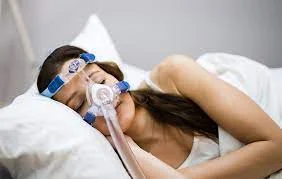
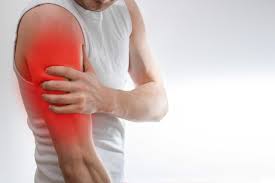

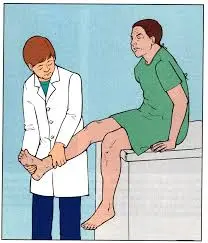
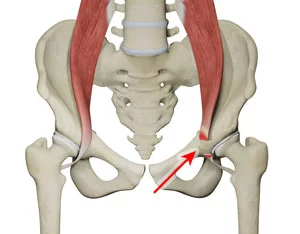
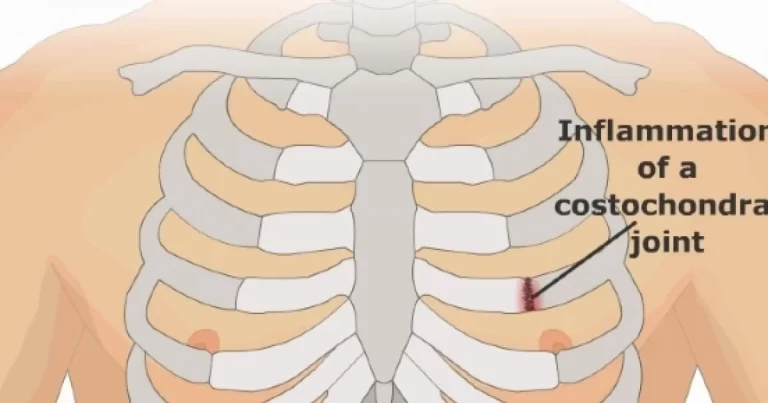
51 Comments